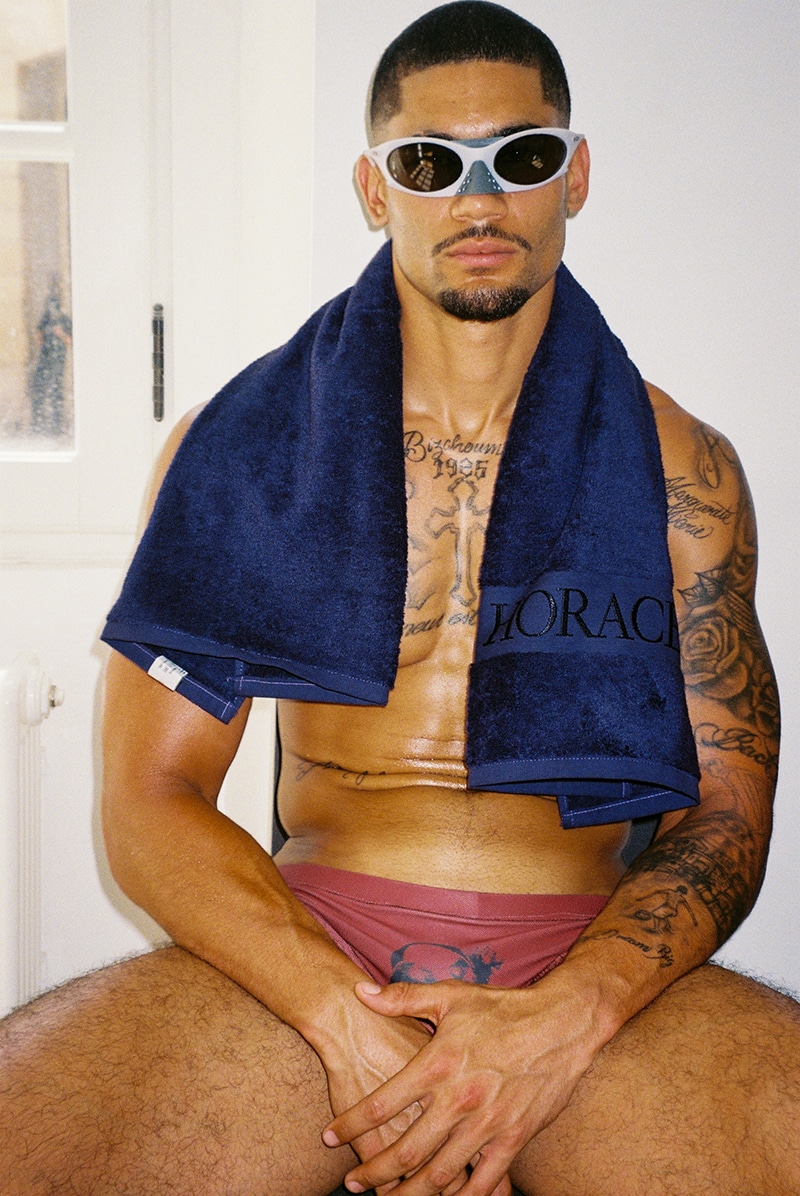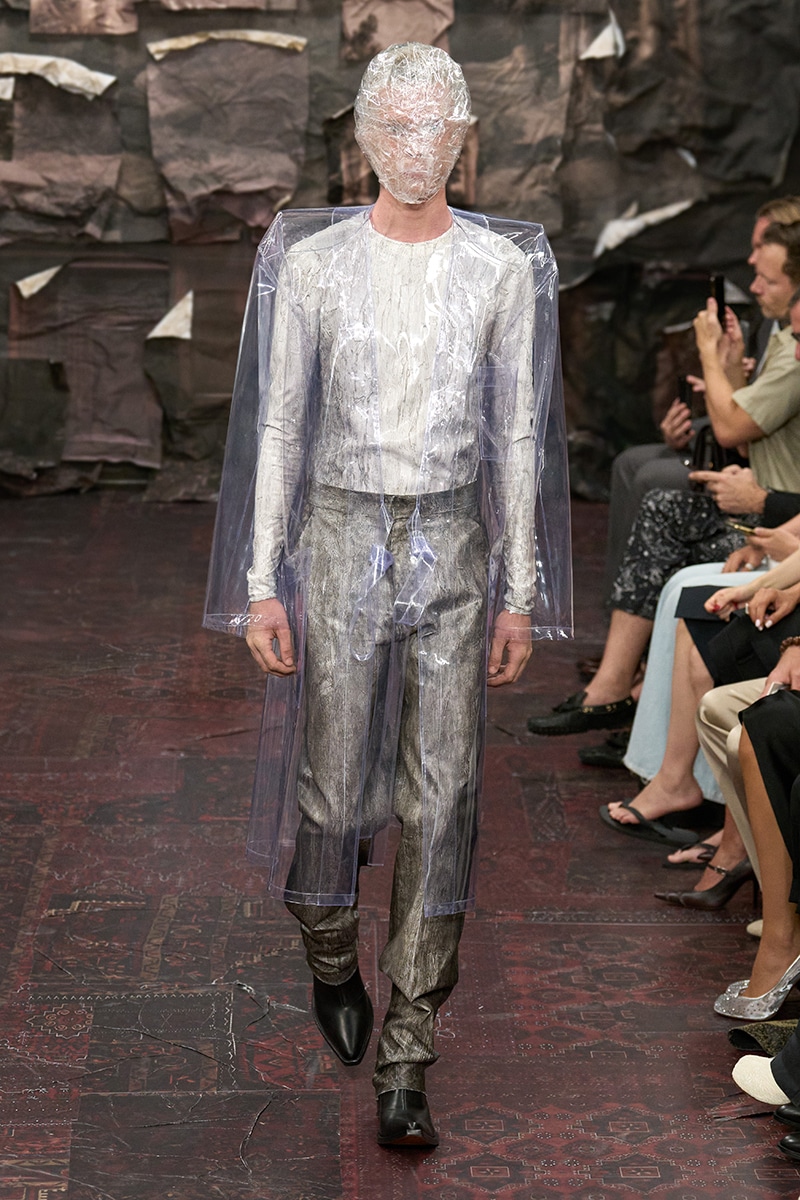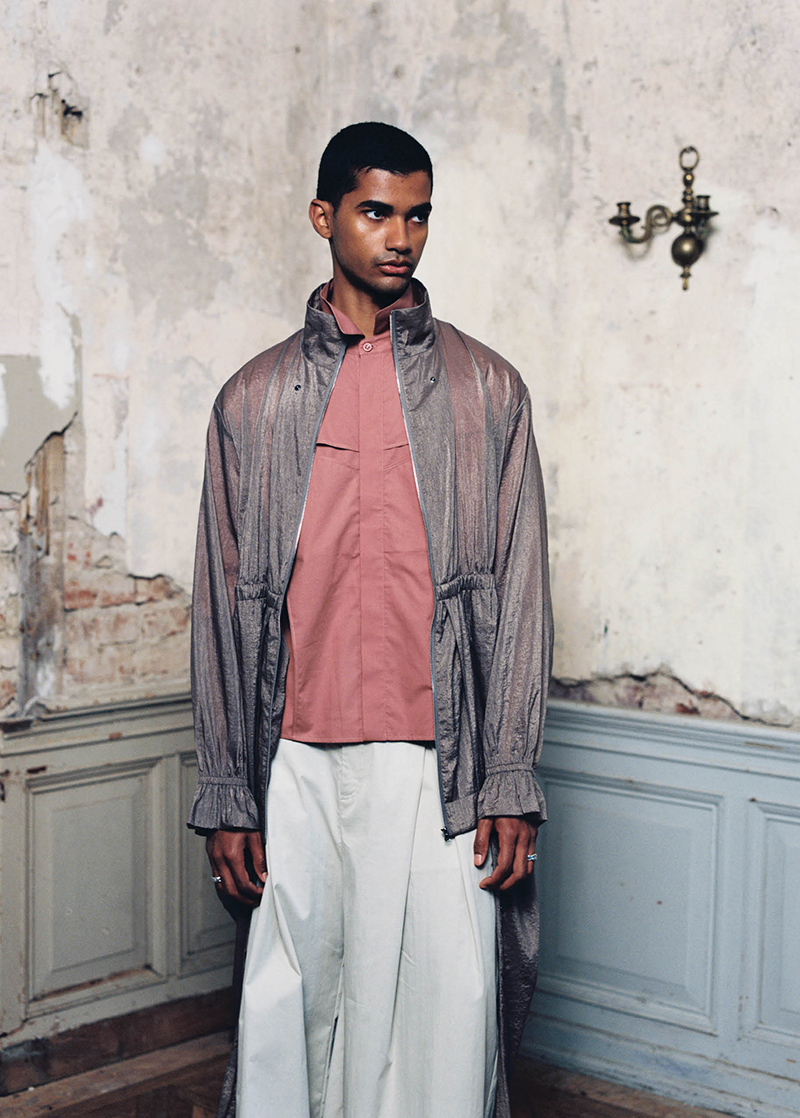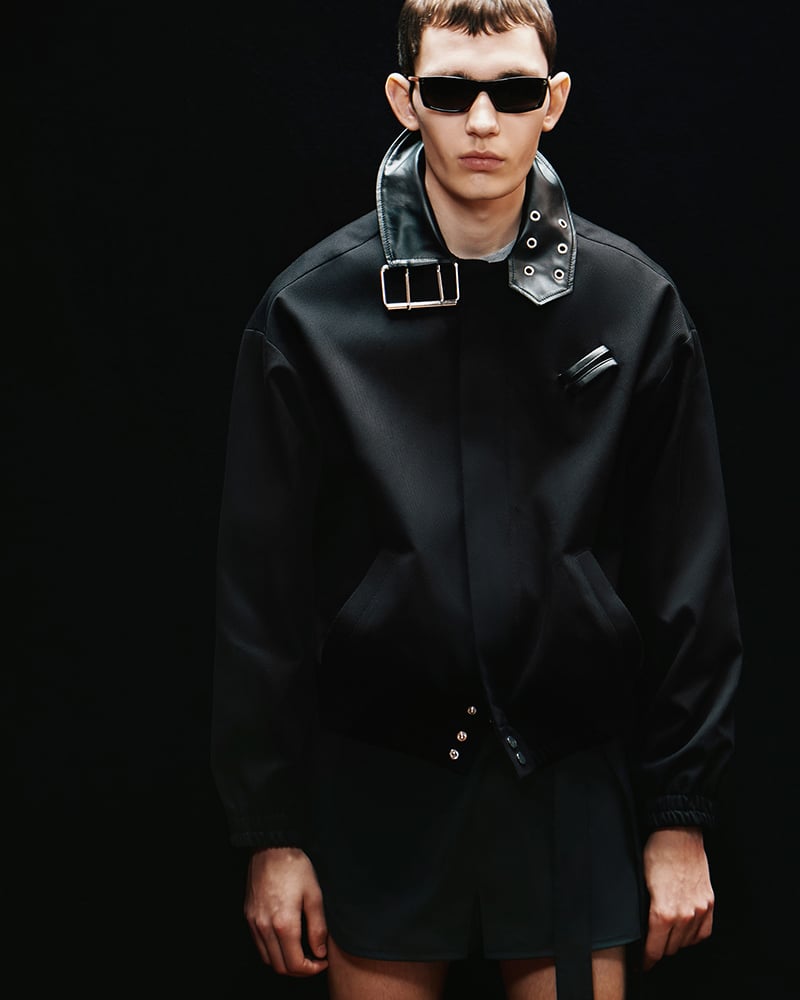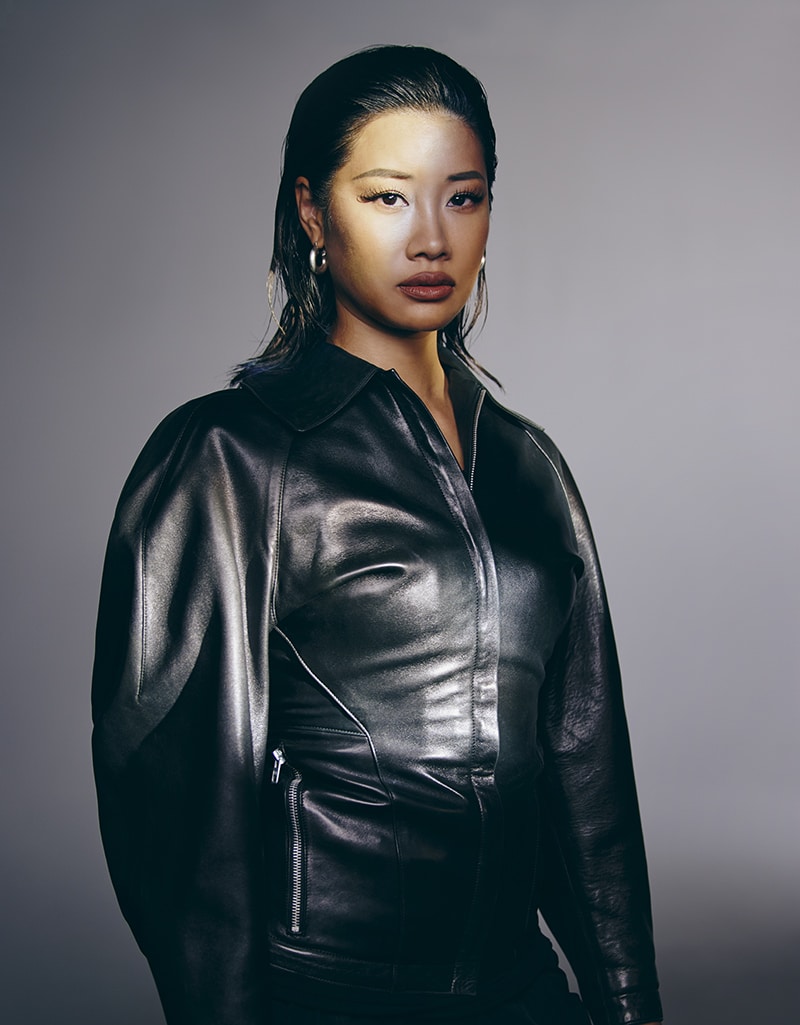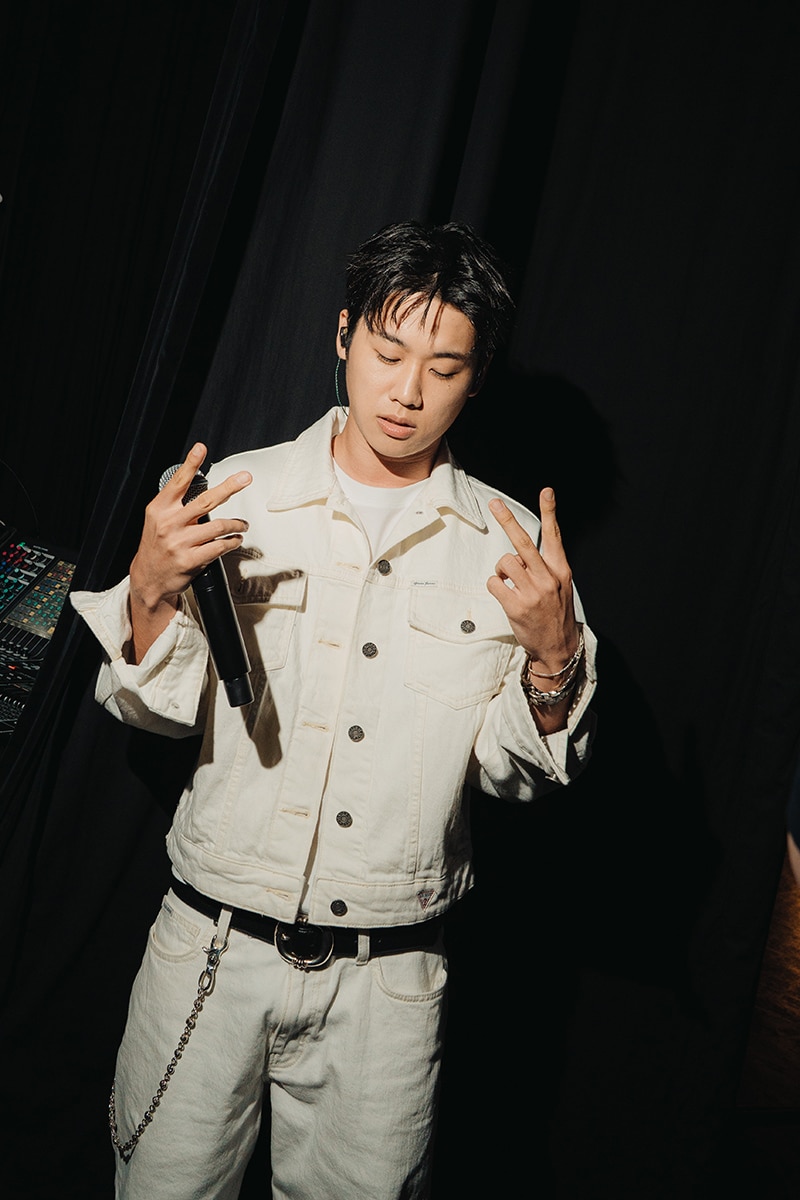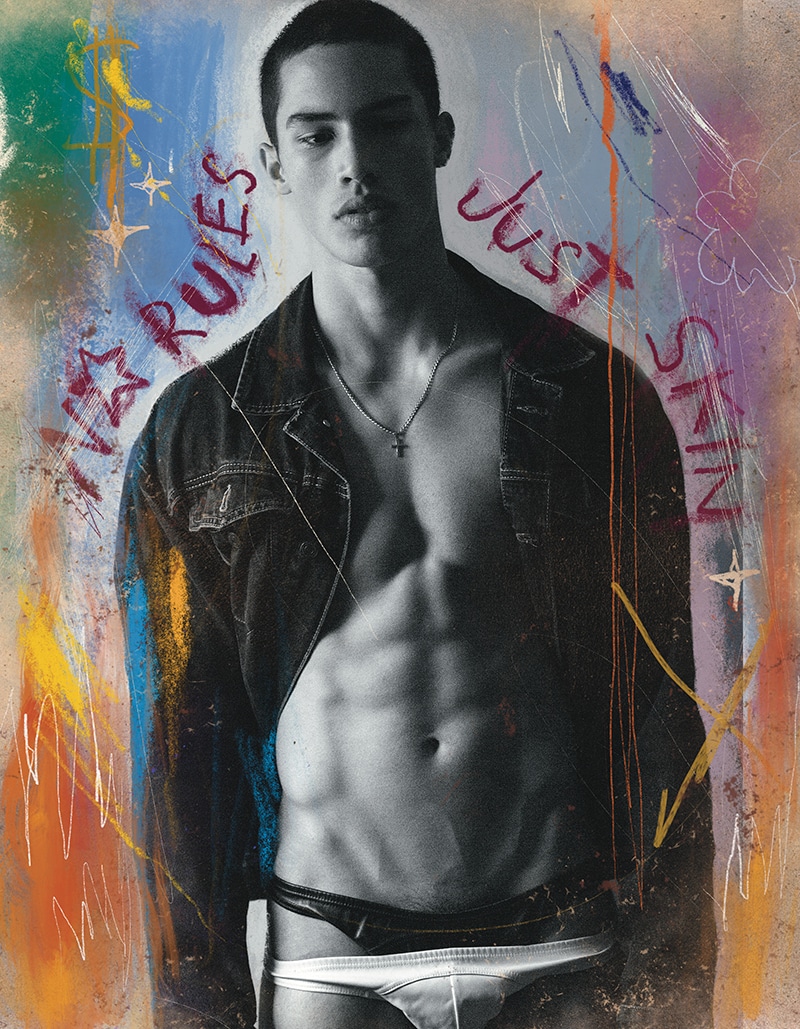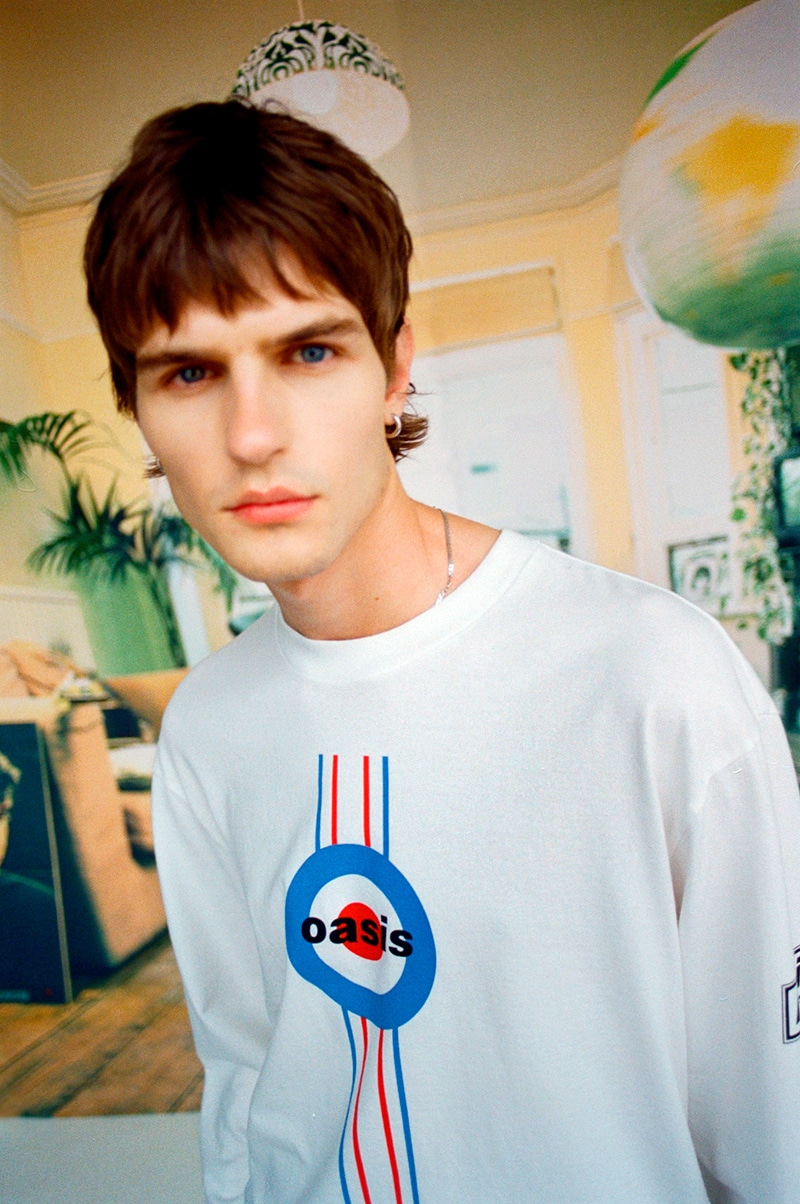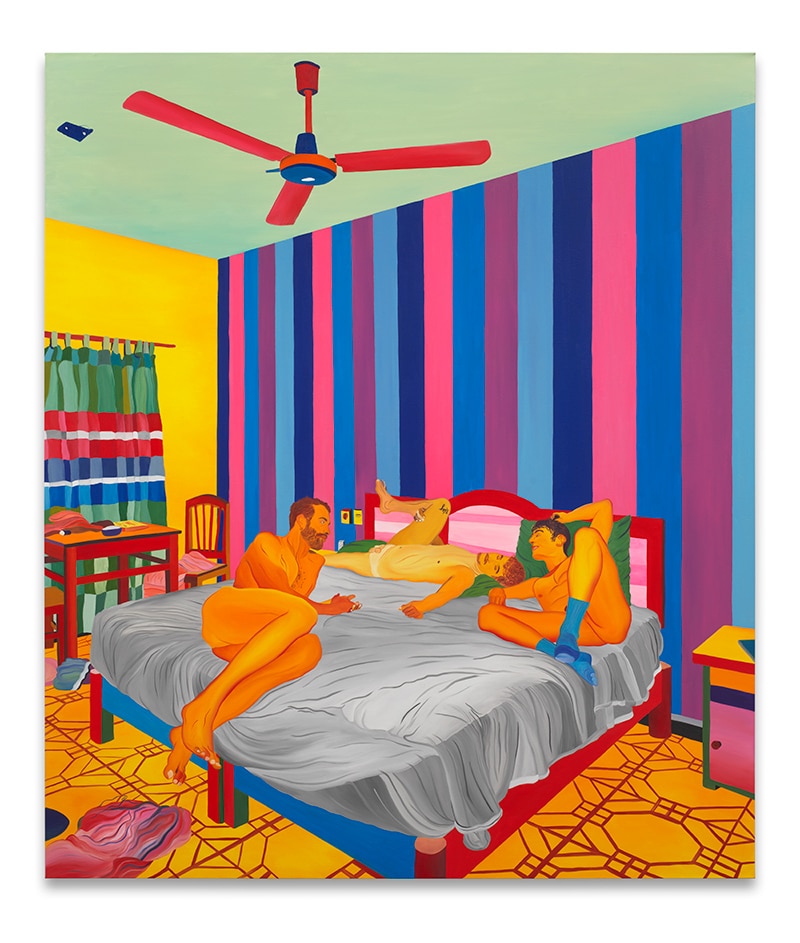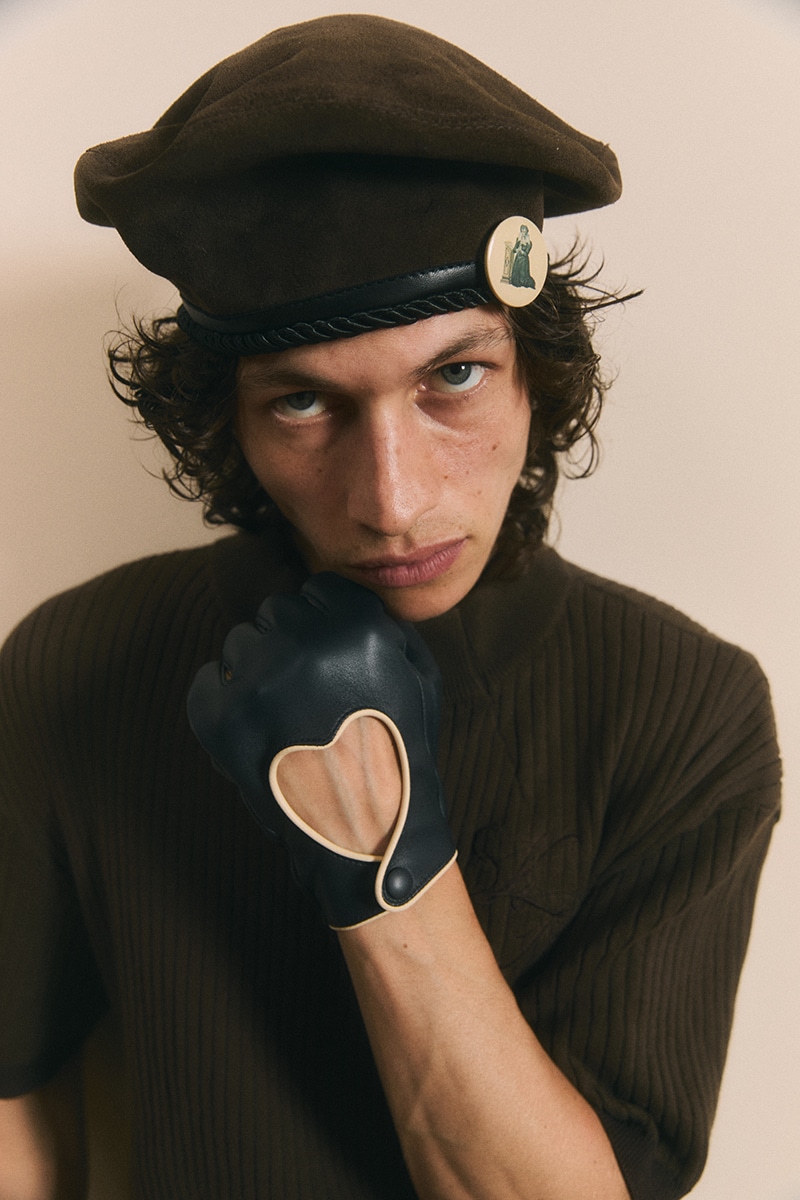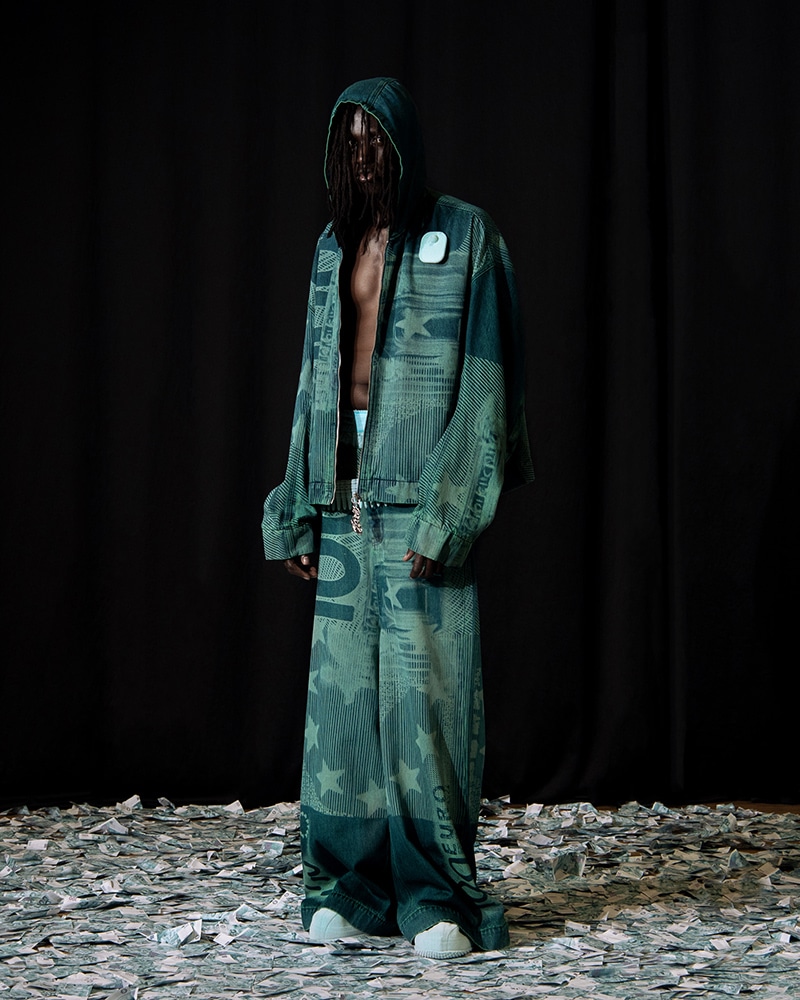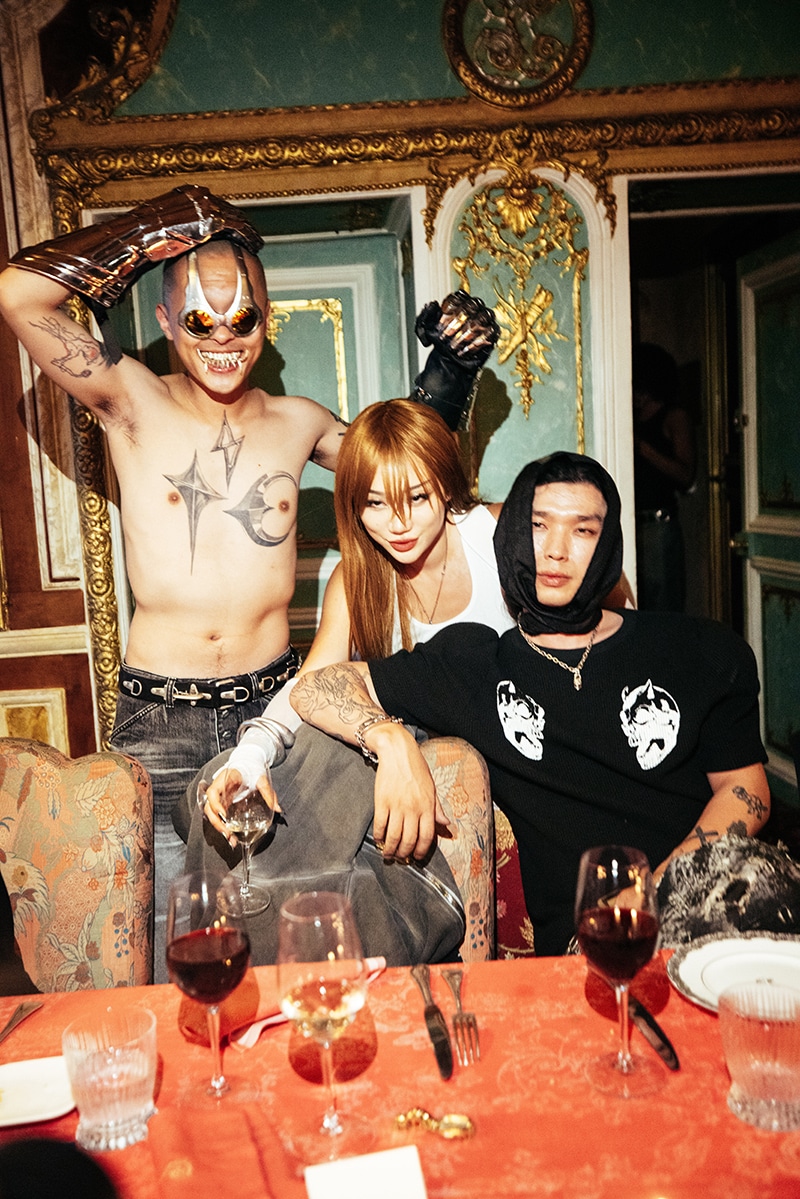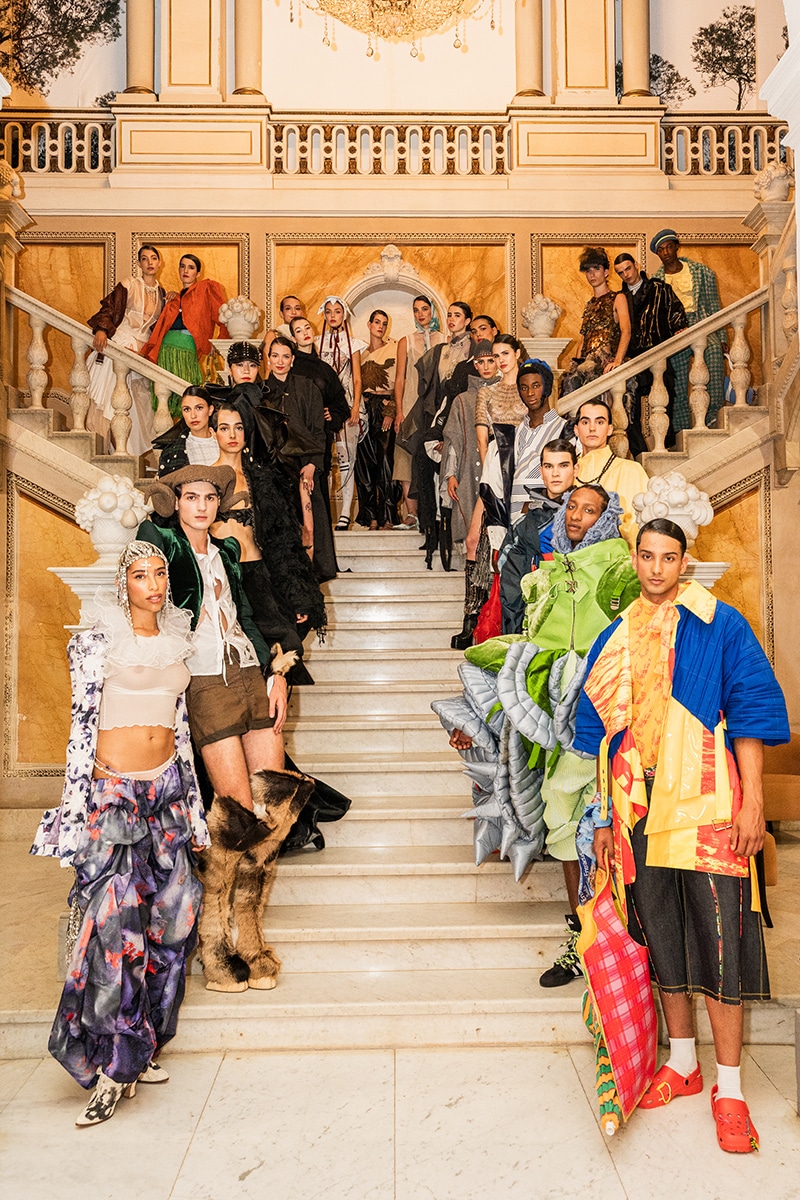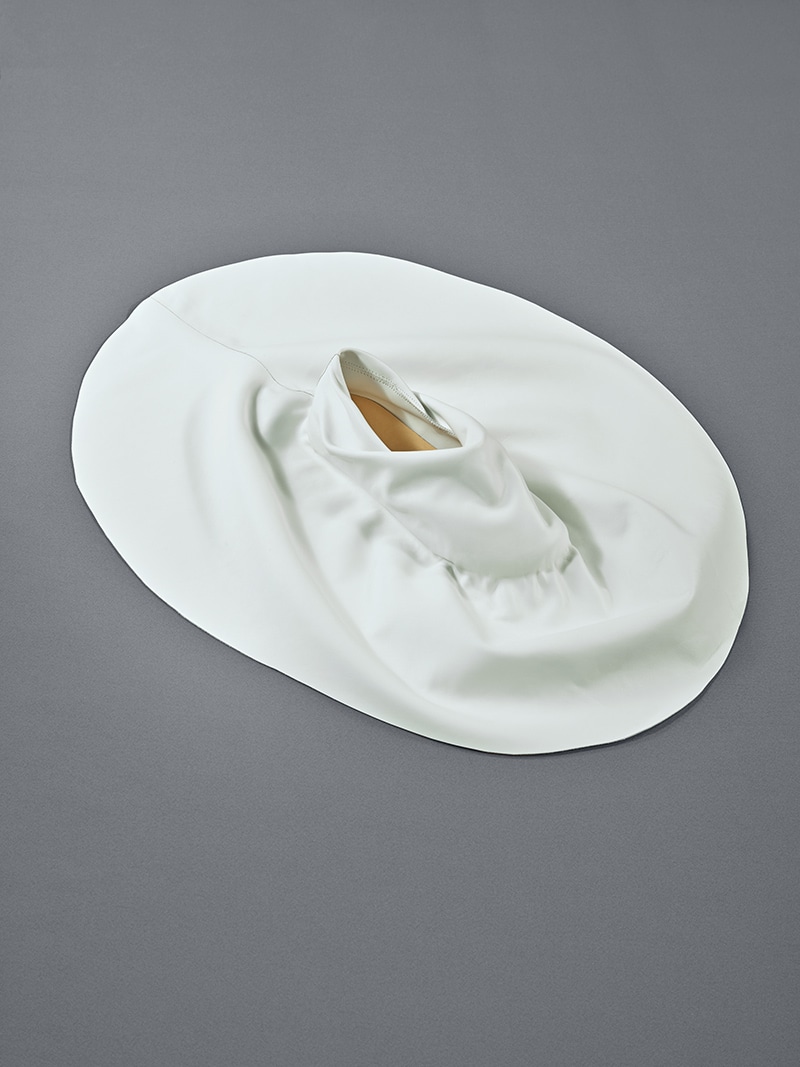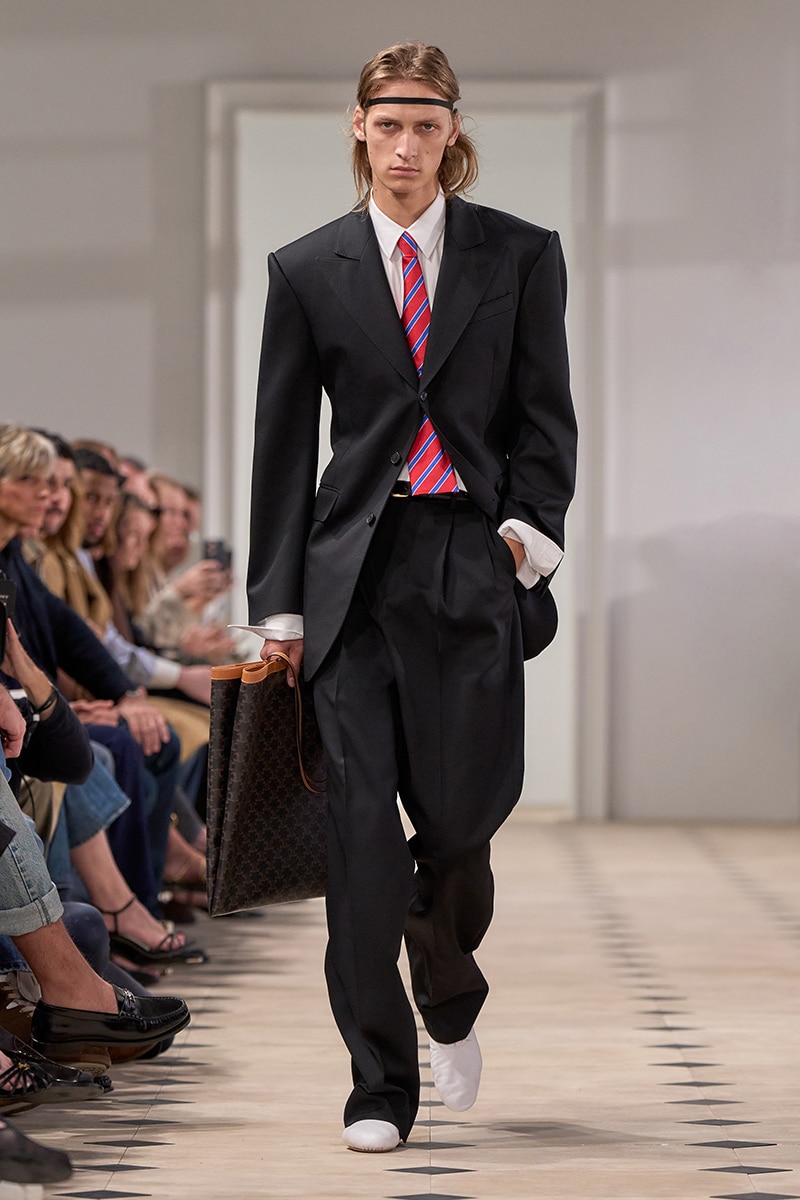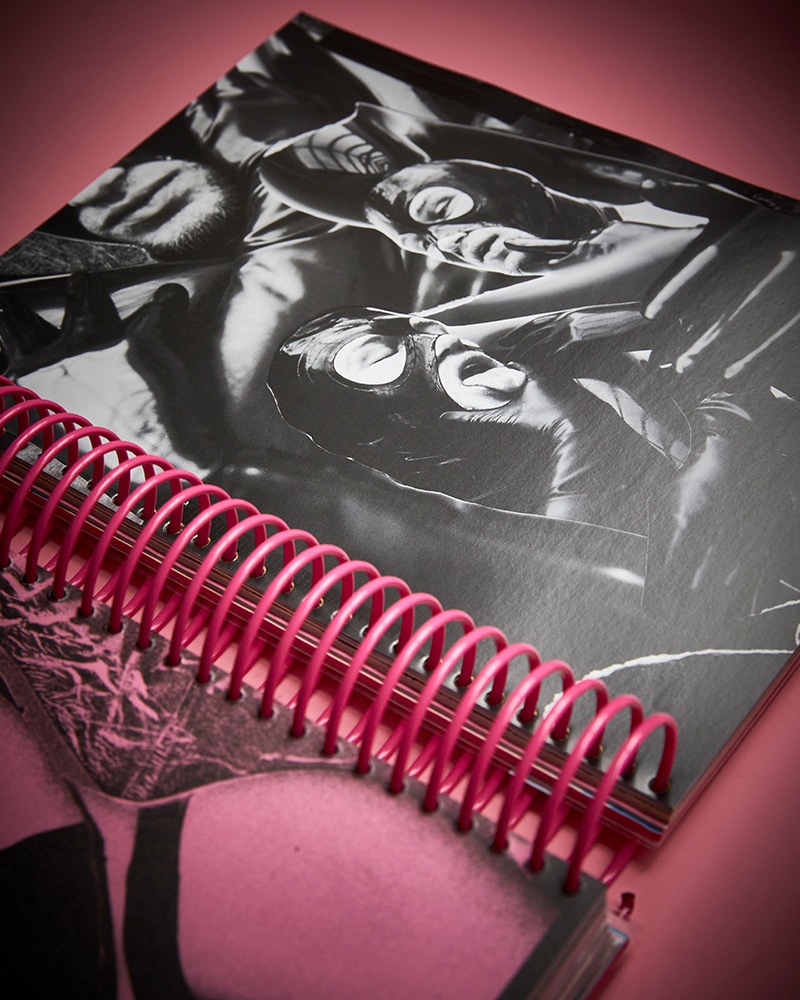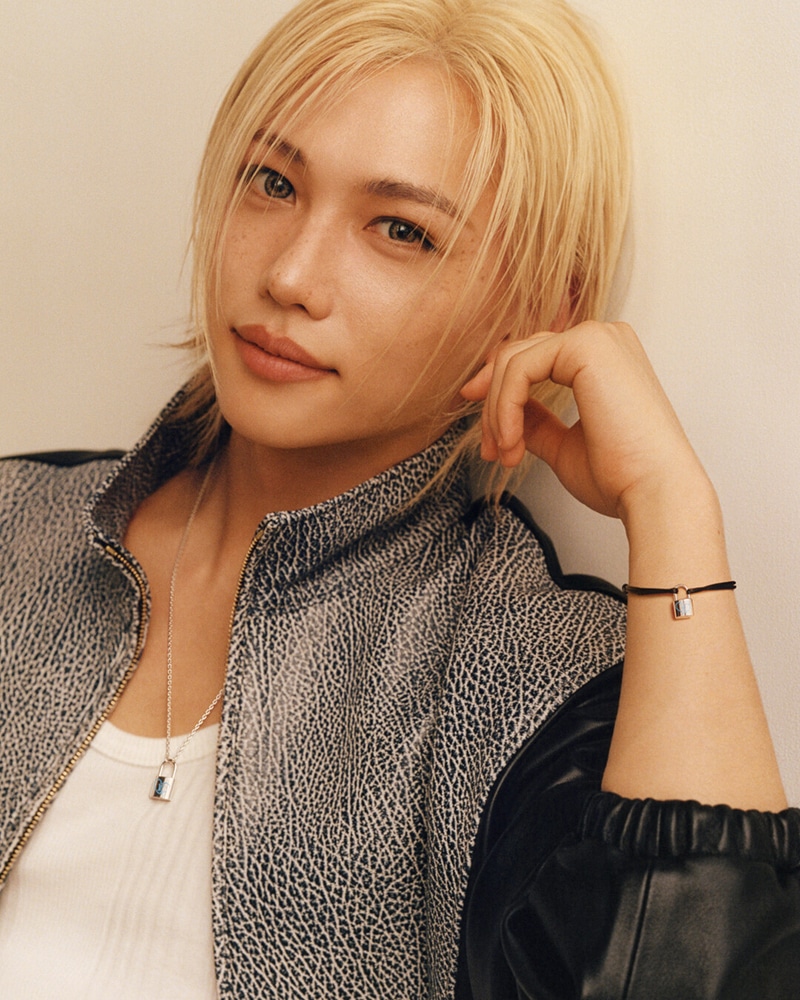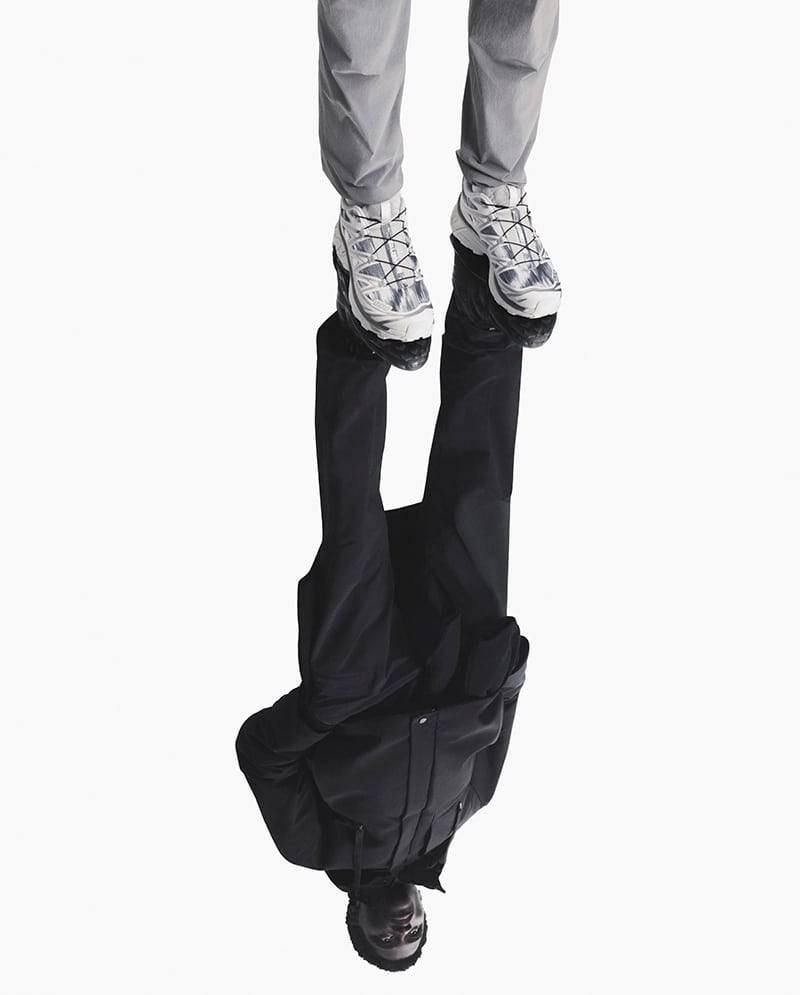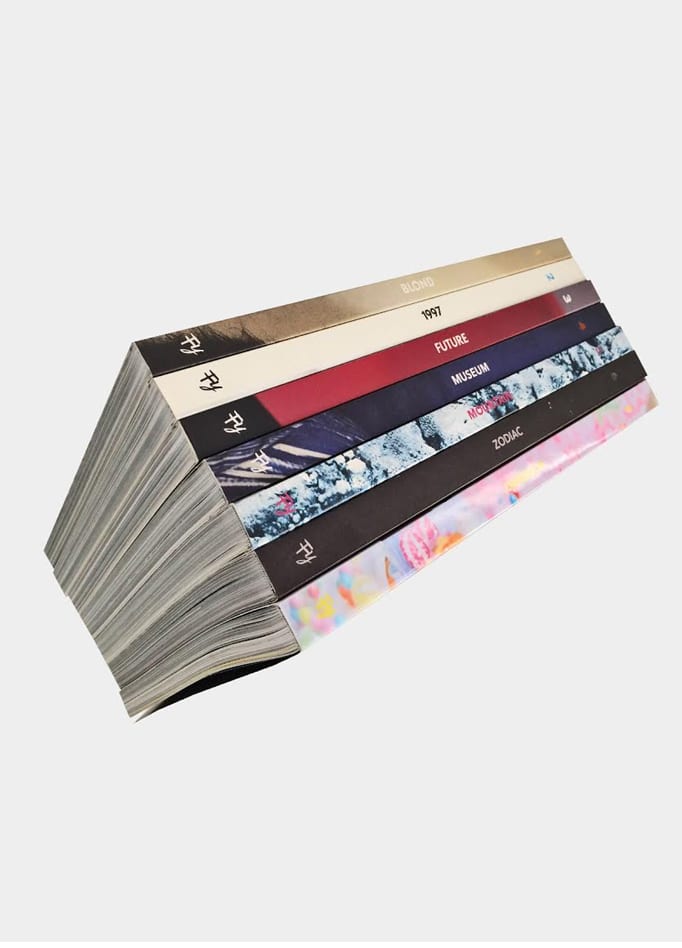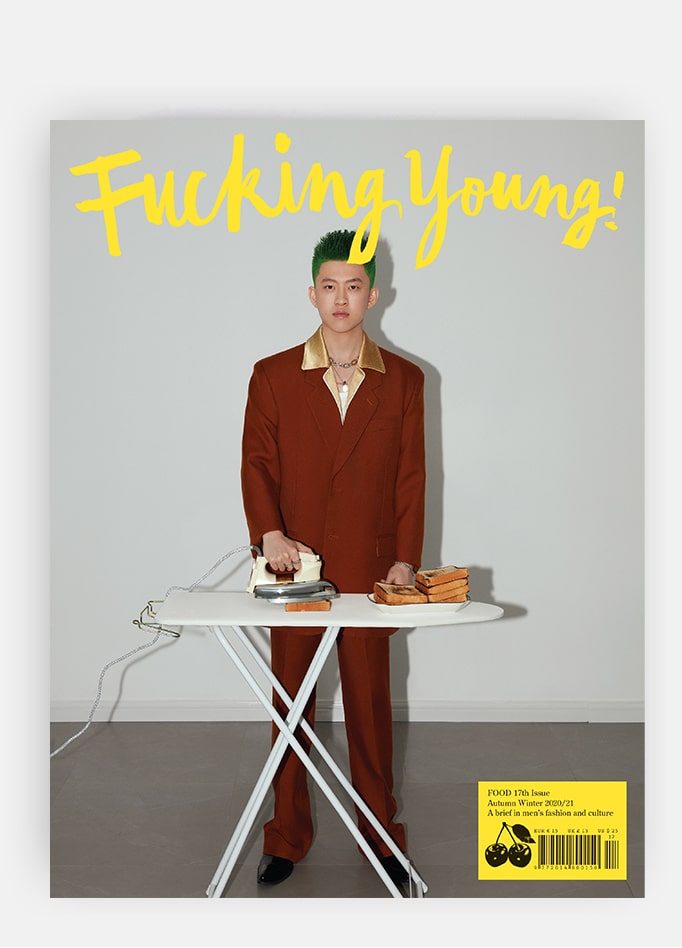Introducing REFUSE CLUB
by Adriano Batista
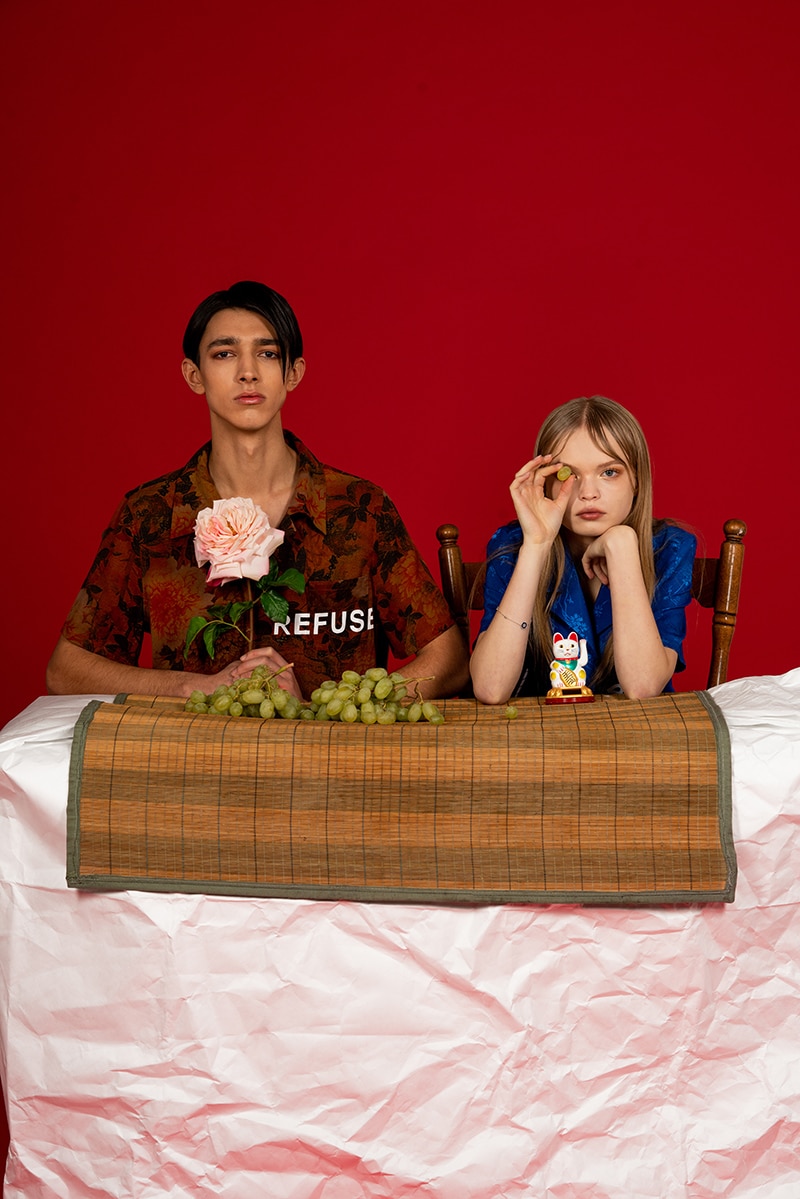
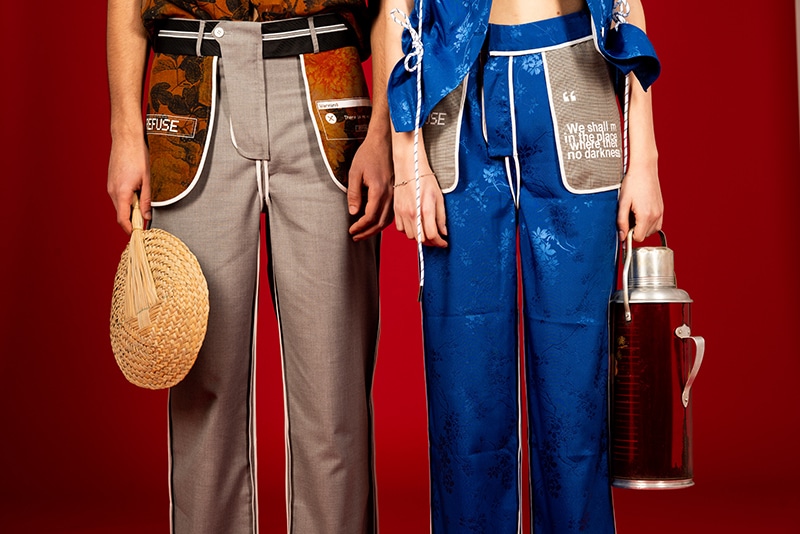
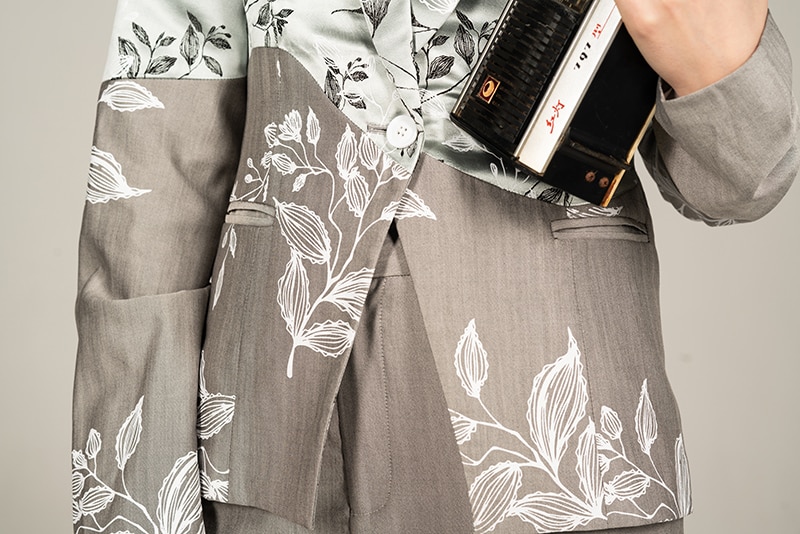

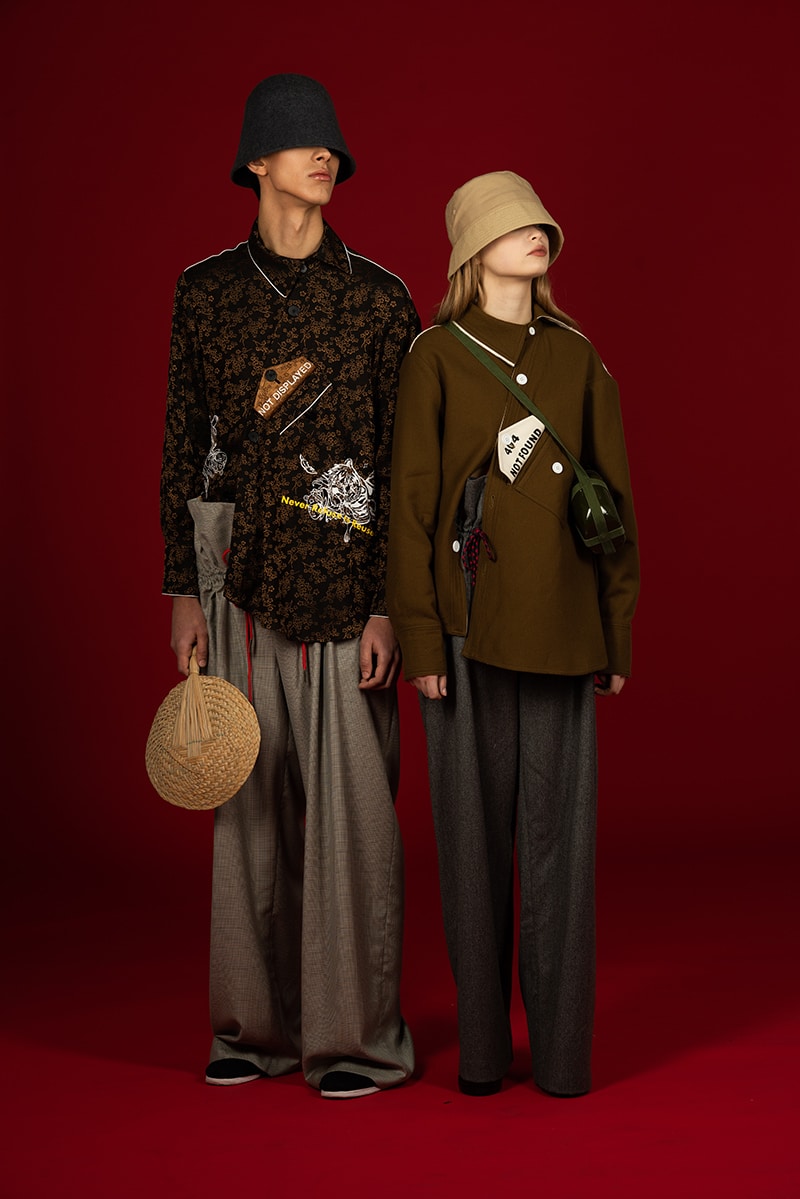
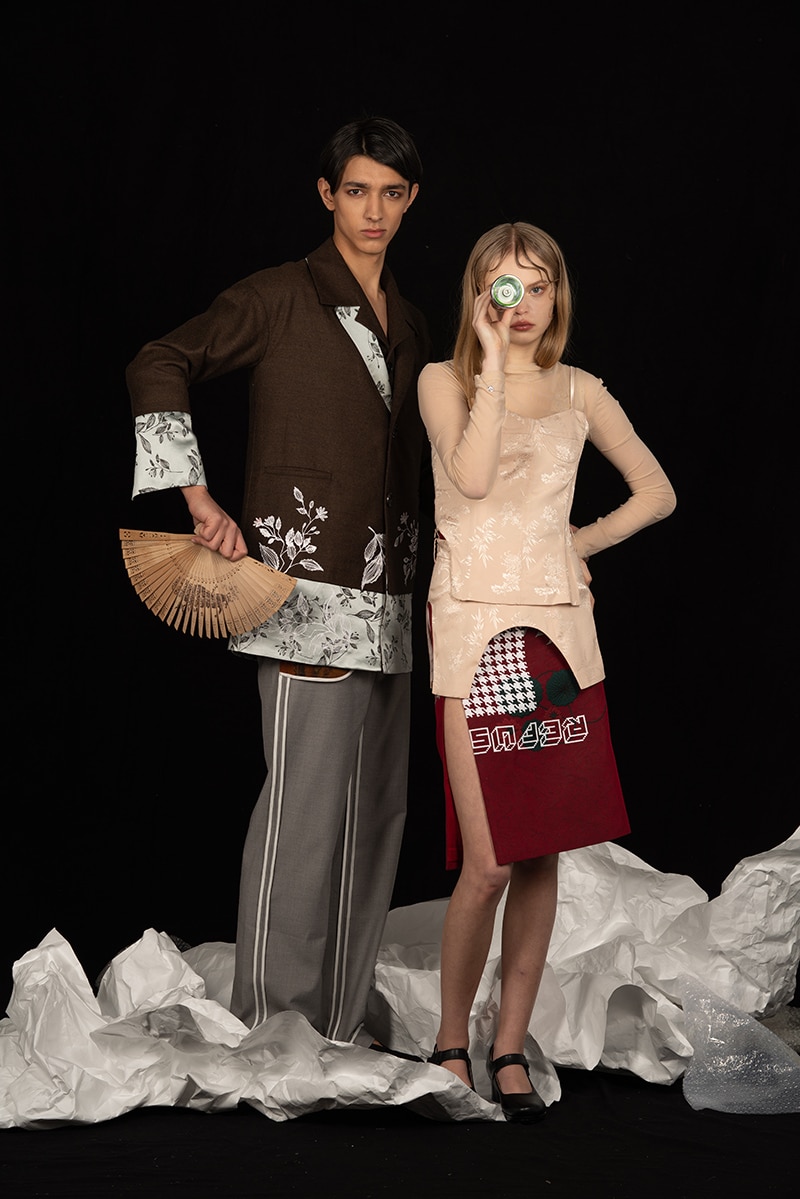
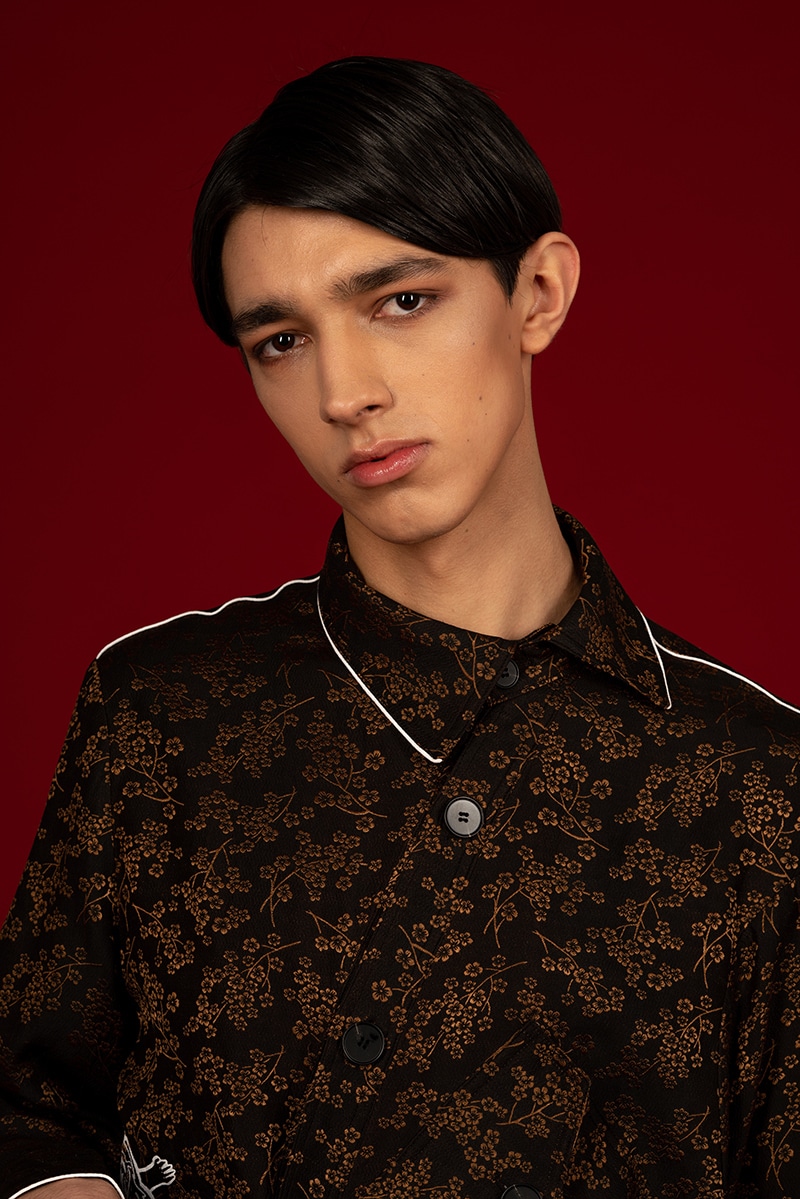
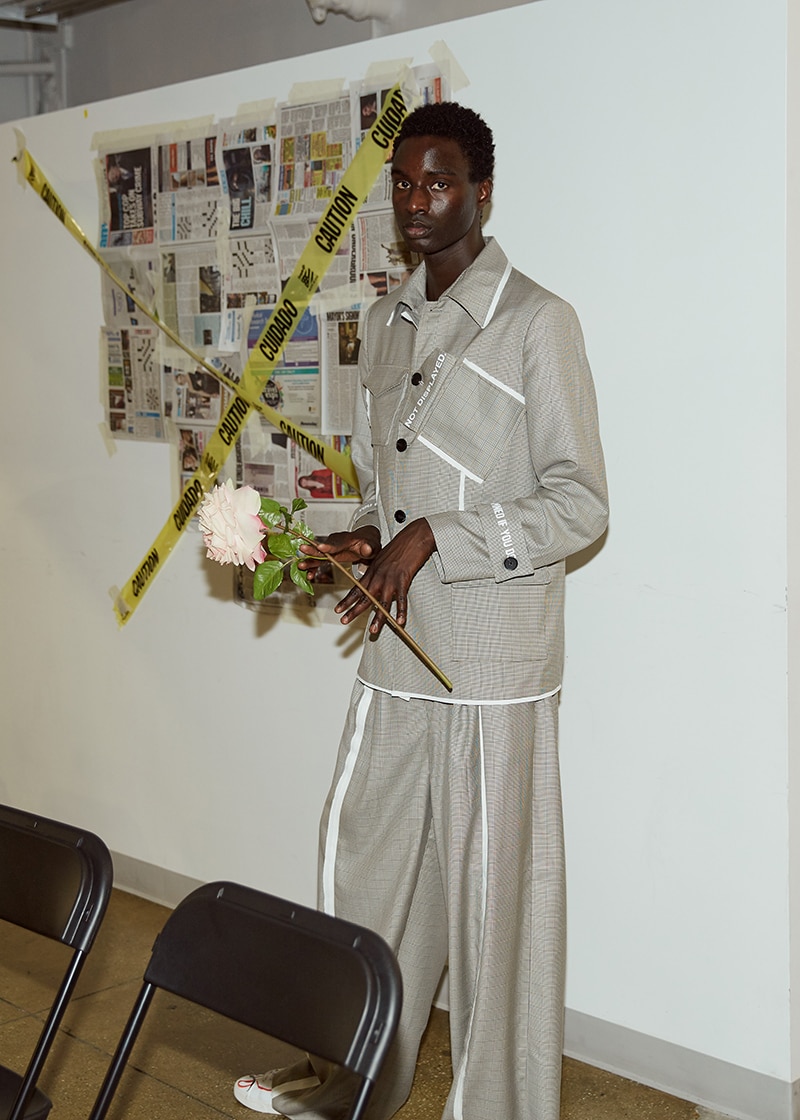
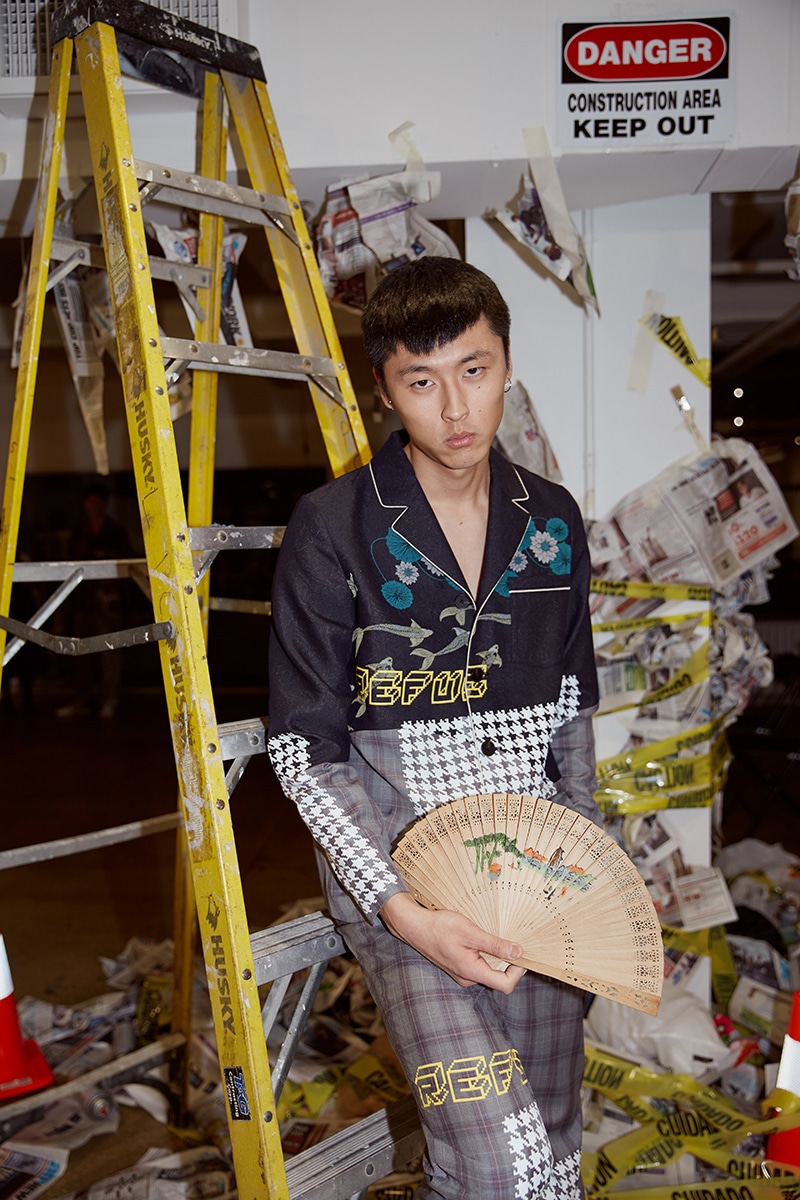
Refuse Club is a Chinese brand launched in 2019 by Parsons grads Yuner Shao and Puzhen “Stef” Zhou.
Zhou and Shao launched Refuse Club as a commentary on the #MeToo movement, which never took off in China. The hashtag was banned from Chinese social network site Weibo shortly after it began trending. Although they live in the U.S., Zhou, and Shao were determined to address the #MeToo taboo in China on another platform and launched Refuse Club.
The brand gets its name from the “Salon des Refusés,” a mid-19th-century exhibition in Paris which showcased paintings that were rejected for being too scandalous by the official Paris Salon. Just as the Salon des Refusés upended cultural conventions in France, Zhou and Shao hope to challenge social mores through Refuse Club.
The brand is also a platform for community and a display of solidarity with #MeToo victims in China, where conversations about sexual harassment and assault are more likely to be silenced or ignored than in the U.S and other liberal states. Zhou and Shao were researching specific cases of sexual violence against women in China when their debut collection began to take shape. They took notes from newspapers that described victims’ attire as provocative, suggesting that they were to blame for being attacked.
The collection is inspired by what victims were allegedly wearing when they went missing, challenging viewers to address an often-implied link between victims’ appearance and the crimes that befall them. Running tops and shorts were among the most frequently mentioned items of clothing in newspaper clips, and are referenced throughout the collection. Other pieces feature a series of screen-printed illustrations called “A 21st Century Guide For Women to Stay Safe.”
Many looks incorporate Chinese silk brocade and Western suit textiles, such as wool and satin, which are produced in Zhou and Shao’s native Chongqing. Once famous for its prominent ramie linen and embroidery exportation, Chongqing’s textile industry is now dying out. The collection references other Eastern narratives with pieces like the qipao, a traditional loose-fitting dress designed to conceal underlying eroticism.
Lacoste Fall/Winter 2019
SEMJONOVS
Take a look at C.R.E.O.L.E’s Spring/Summer 2026 backstage, captured by the lens of Spencer Stovell during Paris Fashion Week, in exclusive for Fucking Young!
Glenn Martens’ Maison Margiela Artisanal collection doesn’t just borrow from history, but it fractures it, reassembles it, and wears it like a second skin.
This weekend, Eastpak reminded us that backpacks aren’t just carriers of belongings – they’re carriers of stories, creativity, and identity
For Spring/Summer 2026, A. A. Spectrum finds inspiration in quiet moments, the natural ease of creativity, and the unforced beauty of renewal.
For Spring/Summer 2026, AV Vattev’s Bohème collection takes its cues from two iconic worlds: the effortless cool of French New Wave cinema and the raw energy of British music subcultures.
Concrete Husband talks about turning psychological collapse into industrial soundscapes, confronting darkness on Berghain’s dancefloor, and why dark techno is, above all, sexy.
Maciej Poplonyk photographed by Arthur Iskandarov and styled by Egor Telenchenko, in exclusive for Fucking Young! Online.
Titled “YOU DO NOT BELONG HERE,” the visuals strip away ambiguity, trading fantasy for sharp, cinematic storytelling.
We met Yoon Ambush – Co-founder and Creative Director of AMBUSH – in Paris during Men’s Fashion Week.
Les Benjamins has turned its attention to the tennis court with a new collection that mixes sport and style.
GUESS JEANS has officially arrived in Tokyo, opening its first Asian flagship store in the heart of the city’s fashion district.
WHOLE is a pilgrimage for the global queer community, a temporary world where joy, radical acceptance, and self-expression reign supreme.
Alexis Otero captured by the lens of Lucas Lei, in exclusive for Fucking Young! Online.
Levi’s® is celebrating Oasis’ long-awaited reunion with a new collection that combines the band’s iconic style with classic denim.
There’s no bitterness in the heartbreak here, just the sense that longing isn’t defeat, but proof you’re alive.
We had the chance to catch up with Ohio-born, Brooklyn-based designer Kody Phillips in his Paris Fashion Week showroom where he unveiled his Spring/Summer 2026 collection.
Dean and Dan doubled down on their love of fashion’s most dramatic moments, remixing 80s power dressing, 90s grunge, and 2000s excess into something entirely their own.
Gerrit Jacob’s latest collection, GAME OVER, isn’t about surviving the wild but about surviving the grind.
Telekom Electronic Beats (TEB) and 032c are turning 25, and they’re celebrating with a capsule collection and an installation by Harry Nuriev. Titled All is Sound.
Cult Korean menswear brand THUG CLUB teamed up with designer IZZY DU for an unforgettable dinner and afterparty at the mythical Lapérouse during Paris Fashion Week.
Jonathan Anderson has always treated fashion like a carefully assembled collection, mixing the unexpected, trusting his instincts, and binding it all together with a strong point of view.
The Palau Reial de Pedralbes provided the perfect backdrop as IED Barcelona unveiled its 21st Fashioners of the World showcase.
This season, Camper unveils its first collaboration with ISSEY MIYAKE’s Peu Form, designed by Satoshi Kondo.
A collection that exudes freshness, confidence, and a desire to write a new page in the history of the Maison.
“Poison Ivy” tells the story of a transfer student’s dangerous fixation with his school’s golden boy.
Aitor Santomé’s AHOY Diary on Board is a glitter-drenched, holographic love letter to queer joy, fashion, and the magic of the open sea.
Louis Vuitton has introduced its latest Silver Lockit 2025 collection, developed in partnership with Felix, the brand’s Ambassador and UNICEF Goodwill Ambassador for Korea.
The Salomon XT-6 wasn’t made for sidewalks. Born for punishing mountain trails and ultra-distance races, its technical DNA speaks to wilderness endurance.
Stéphane Ashpool has opened Souvenir Pigalle at 17 Rue Duperré, a place built on his memories of growing up in Pigalle.
The book challenges narrow ideas of beauty and masculinity by simply letting men exist, unpolished and unapologetic, across generations.









